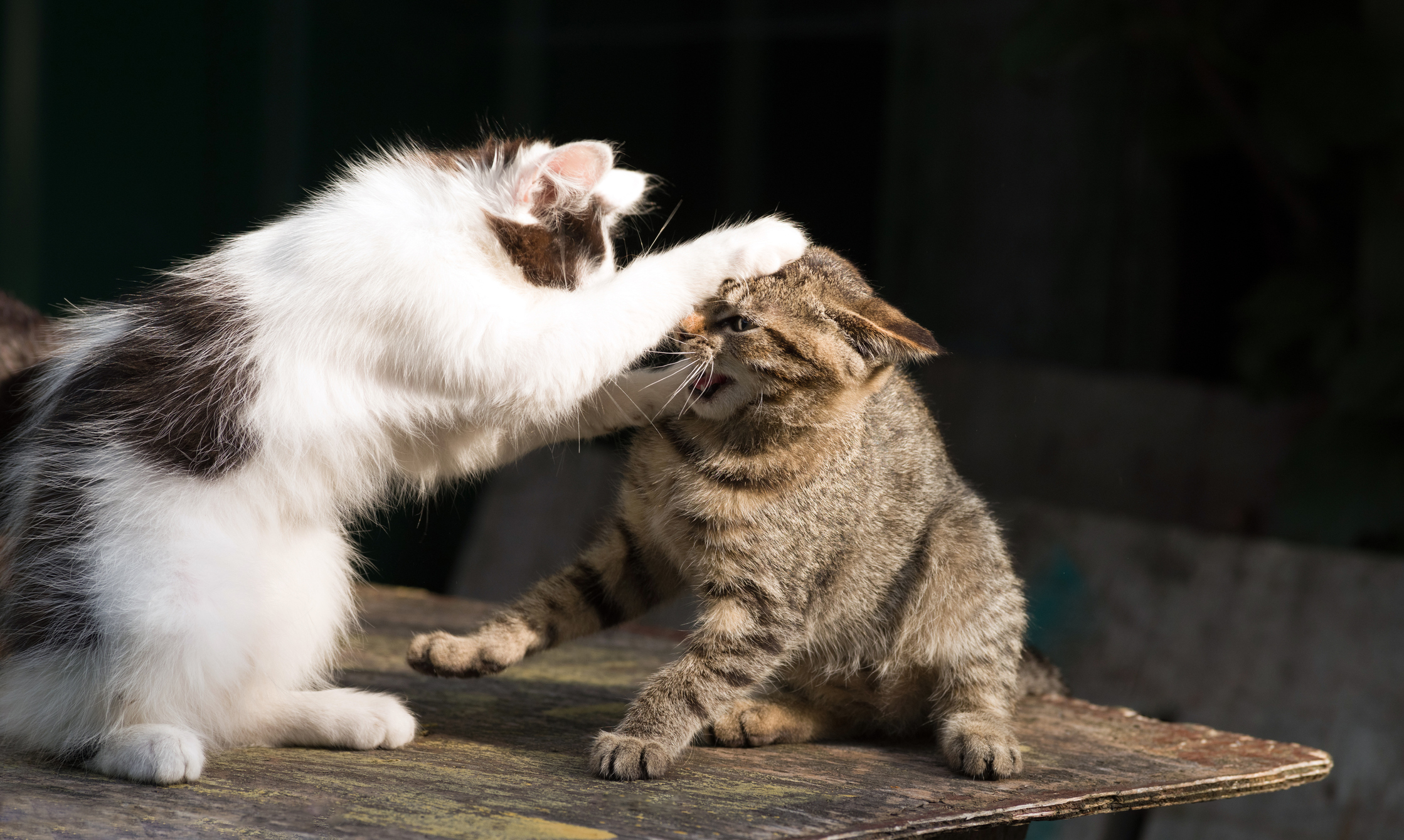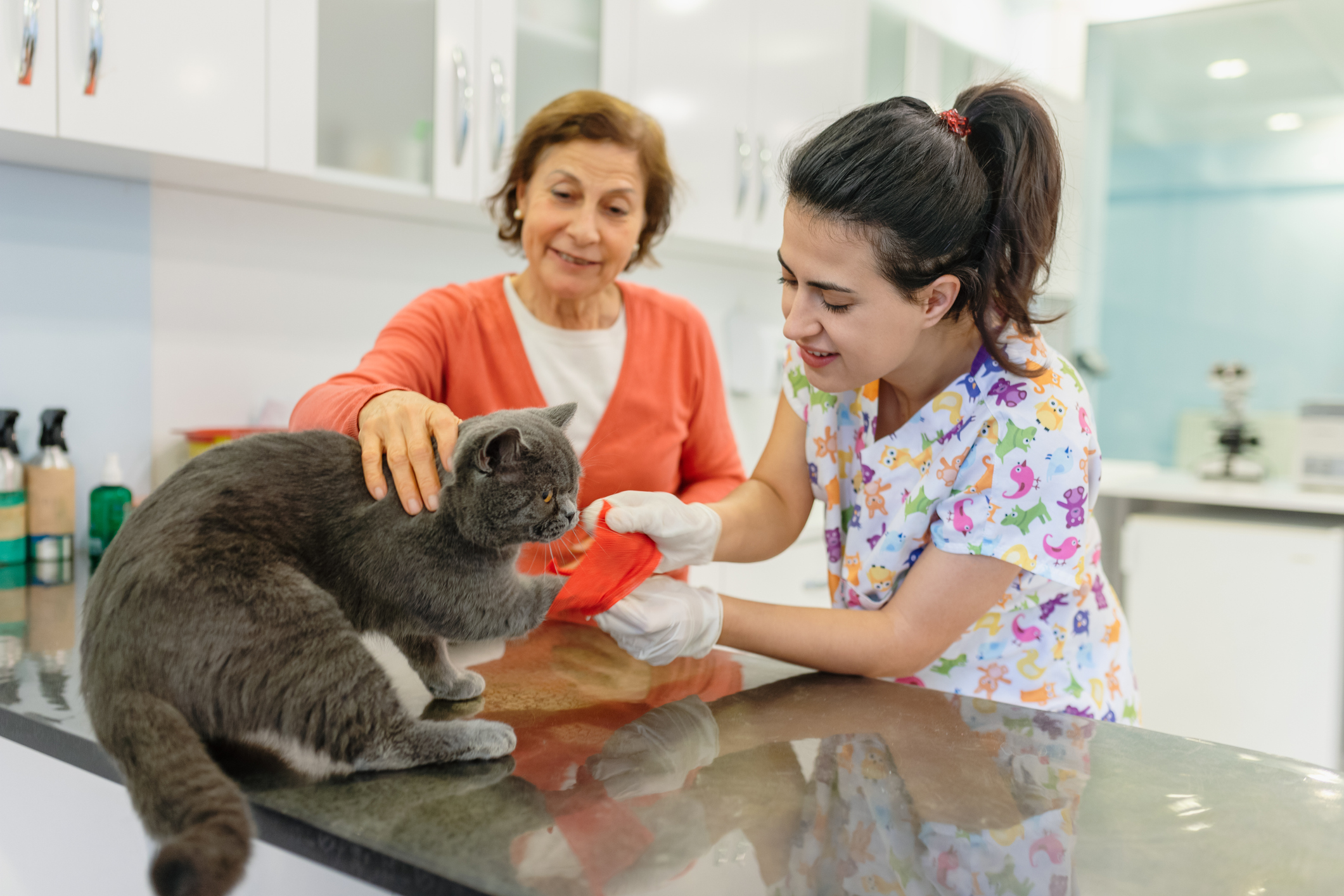
How to Identify and Treat an Abscess in Your Cat
If you own more than one cat, you’ve likely had to break up your fair share of kitty skirmishes. When the claws come out, your cats are at risk of sustaining an injury. Unfortunately, what may seem like a harmless scratch can fester until it becomes an abscess. If left untreated, this type of wound can spread and turn into a much bigger problem.
Luckily, veterinarians can easily treat abscesses and prescribe medication to fight off further infections. An abscess won’t go away on its own, so a trip to the vet is necessary. But in order to receive treatment, your kitty needs you to recognize the tell-tale signs of this dangerous problem.
What is an abscess?

Abscesses can develop if an open wound—such as a bite or scratch from another cat—becomes infected. When this happens, a pocket of infected material grows beneath the skin and creates swelling. If the abscess is left to develop long enough, built-up pressure may cause it to break through the skin’s surface and leak pus.
This may seem like a minor concern, but an abscess is more than just a scratch taking a long time to heal. Abscesses have the potential to become a serious health issue. They can spread beyond the initial wound to other parts of the body. In severe cases, infections caused by abscesses can spread to your cat’s organs and become much more difficult to treat.
Watch for symptoms
Your cat might appear fine at a distance, but you have to take a closer look in order to spot the warning signs of an abscess. Inspect your cat’s skin for open sores or swelling. Fur can make it difficult to locate an abscess, but the presence of bald areas or matted fur can let you know an abscess lies beneath the skin. If a foul-smelling pus is present, the abscess has already ruptured and must be kept clean until your furry friend pays their vet a visit.
Also pay attention to your cat’s behavior. You may not discover the presence of an abscess until it ruptures, but a cat’s energy level can clue you in on an abscess that’s still in the developing stages. Does your cat usually get excited about playtime or race to their food bowl? If they’re suddenly not interested and lethargic, they might have an abscess. If the abscess is still developing, your cat will likely be running a fever, as well.
In order to catch an abscess early, it can help to give your cat a routine examination at home—especially if they’ve recently gotten into a fight with another cat. The sooner you’re able to identify and treat the abscess, the better.
How vets treat abscesses

Once you’ve suspect that your cat has an abscess, there are a couple things you can do to prep them for their vet appointment. Use a pair of clean scissors to snip away fur that’s blocking your view of the abscess. If you do this step, take care not to let your cat squirm and cause further injury.
With gentle pressure, apply a clean cloth saturated with warm water to the abscess. You only have to do this for a minute or two. You should not try disinfecting the abscess on your own with alcohol or other ointments. These steps allow you to safely clean the infected area and gauge the severity of the infection, so you can provide the vet with as much detail as possible.
At the vet’s office, they will evaluate the severity of the abscess and choose the best option for treating it. If the abscess is already open and draining, your vet can easily treat it without sedation. If the abscess hasn’t ruptured yet, they may need to make a small cut to allow the abscess to drain. Lab tests will determine which antibiotic is best for preventing further infection.
Inform your vet about any medications your cat is currently taking. That way, they can avoid mixing medicines that don’t work well together and create a healing regimen that’s best for your kitty.
Treatment at home
Your cat will have to be in a sterile environment while their abscess heals. The best options are rooms with tiled floors, such as the bathroom or laundry room. Tiling is easy to clean and has a lower risk of introducing bacteria to the abscess. Provide your kitty with all the usual comforts like a litter box, blankets, food and cuddles. As they heal, clean the abscess as needed with a warm, damp cloth.
Abscesses don’t have to be a big deal if you take action right away. Because abscesses can develop quickly, it’s worth it to check your cats for injuries after they get into a tussle. They’ll love you all the more for it, and you’ll be able to keep them happy and safe.


